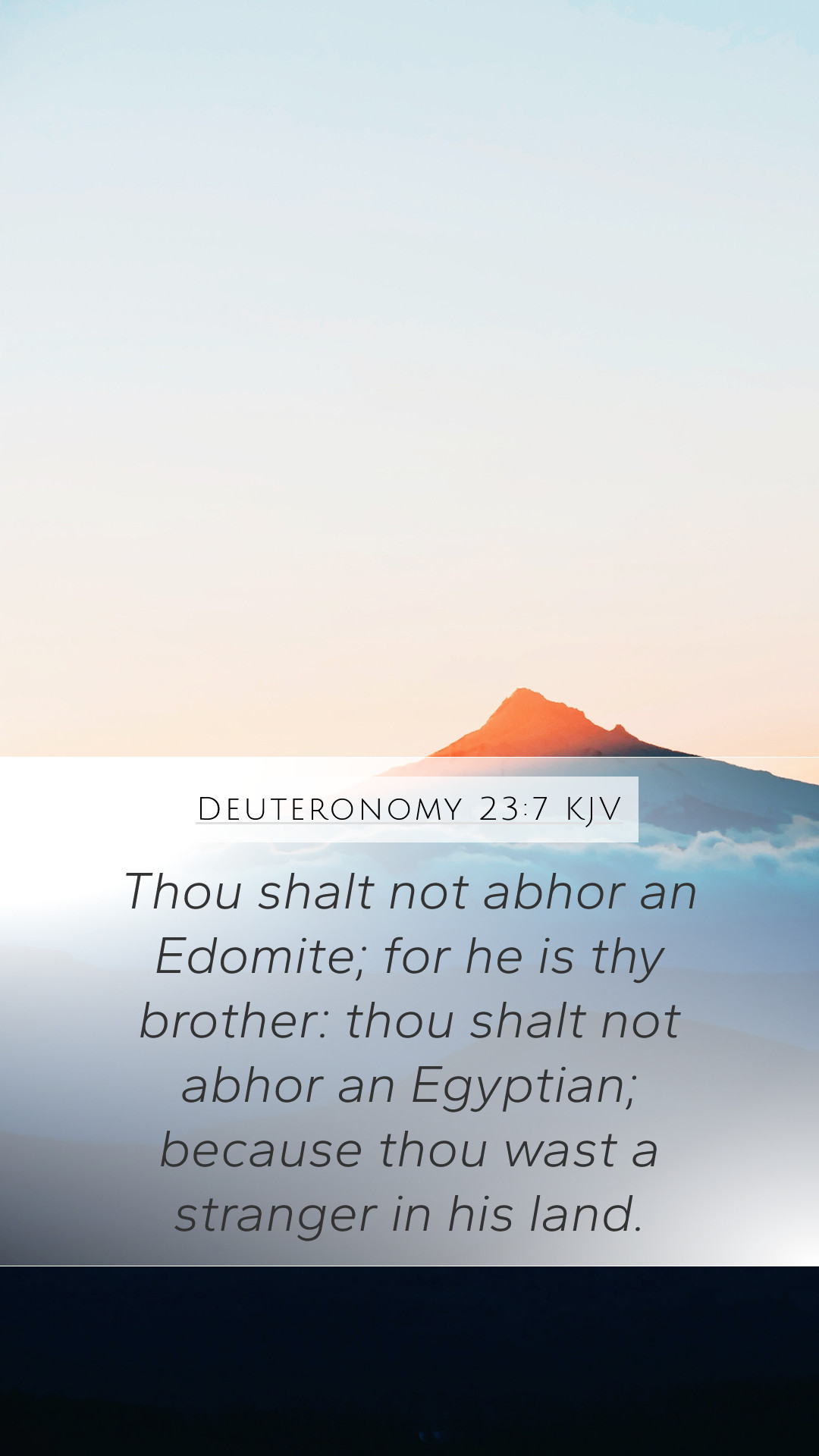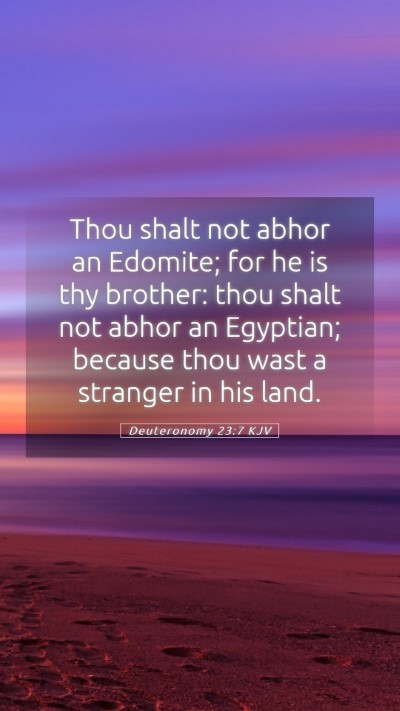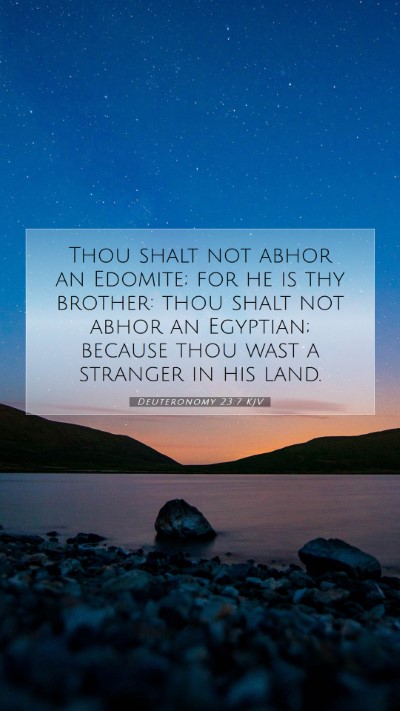Bible Verse Commentary: Deuteronomy 23:7
Deuteronomy 23:7 states, "You shall not abhor an Edomite, for he is your brother; you shall not abhor an Egyptian, because you were a sojourner in his land. The children of the third generation born to them may enter the assembly of the Lord." This verse speaks to the treatment of specific groups of people in relation to the Israelites, emphasizing brotherhood, acceptance, and the considerations of past relationships.
Understanding the Context
The context of Deuteronomy 23 involves regulations concerning who may enter the assembly of the Lord, which signifies participation in Israelite worship and community. The Israelites are reminded of their historical experiences, particularly in relation to the Edomites and Egyptians, which adds depth to the notion of kinship and acceptance.
Insights from Public Domain Commentaries
-
Matthew Henry's Commentary:
Henry emphasizes the importance of familial ties and historical context. He points out that while Edomites are descendants of Esau, and Egyptians offered refuge during times of distress, they should not be despised. This reflects a broader theme of mercy and inclusion within the community of faith, urging Israelites to remember their past humility.
-
Albert Barnes' Notes:
Barnes discusses the intent behind this directive, which is to preserve the unity and cohesion of the Israelite people. By stating that they should not abhor these groups, the text promotes an understanding of potential reconciliation and the rejection of prejudice based on heritage. Barnes underlines that these people, regardless of their past actions against Israel, must be seen as part of a larger human family made in the image of God.
-
Adam Clarke's Commentary:
Clarke provides a theological reflection on the nature of inclusivity among God's people. He argues that this verse serves to discourage animosity and promote peace, reminding the Israelites that they, too, were once strangers. His commentary invites a larger application concerning how modern believers interact with those different from themselves.
Theological Themes
Several vital theological themes arise from Deuteronomy 23:7, including the significance of:
-
Brotherhood:
The use of familial language indicates a relationship grounded in shared history. Edomites, as descendants of Esau, are literally considered "brothers," highlighting the complexity of familial relationships in Scripture.
-
Forgiveness and Acceptance:
This verse challenges individuals to extend grace to those considered enemies or outsiders, inviting believers to actively practice forgiveness.
-
Historical Context:
Reminding the Israelites of their time in Egypt, the verse contextualizes their mandate for compassion and empathy toward others, who may also be outsiders.
Application for Today
For modern readers and Bible study groups, Deuteronomy 23:7 serves as a poignant reminder to approach relationships through the lens of acceptance and understanding. As one engages in Bible study topics about cultural and historical relationships, this verse can be an excellent launching point for discussing how Biblical exegesis aids in applying ancient principles today.
Cross-References
Related passages that reflect similar themes of acceptance and historical context include:
- Genesis 36 - The lineage and relationship with Edom.
- Exodus 22:21 - The call to treat foreigners kindly.
- Isaiah 56:3-8 - Promises of inclusion for foreigners and eunuchs.
Conclusion
In summary, Deuteronomy 23:7 provides rich Bible verse meanings that extend beyond its immediate context. It is a call to avoid enmity, foster community, and embrace those who seek belonging. This scripture serves to inform current practices of Bible study lessons and encourages believers to reflect on their historical and spiritual journeys in relation to others.


